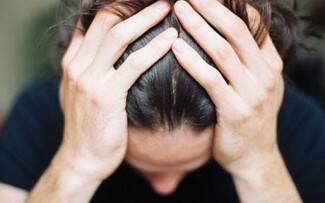Everyone in my hometown knows him. We always see him dancing on the street corners, wearing flamboyant attire, fighting with light posts, pretending to be a tree. We all know him, but few know what he’s like when not on his medication: instead of his affable, quirky self, we see the darker side of his illness, prone to violent tantrums and potential assaults. This former army sergeant suffers from severe mental illness and, like millions of other Americans, often goes unsupervised and is left to public authorities to deal with.
According to the National Institute of Mental Health, a 2012 study found that 9.6 million Americans aged 18 and older suffer from a Serious Mental Illness (SMI), being defined as, “A mental, behavioral, or emotional disorder (excluding developmental and substance use disorders)…and Resulting in serious functional impairment, which substantially interferes with or limits one or more major life activities.” NIMH reports that, overall, 18.6 percent of all U.S. adults suffer from Any Mental Illness (AMI), or roughly 43.7 million Americans. And that’s nowhere near all of them.
The study, presented in the National Survey on Drug Use and Health, does not include the homeless or transient individuals, active military personnel or individuals residing in “institutional group quarters,” including prisons, nursing homes and mental health facilities. It only surveyed people who lived in households and in “non-institutional group quarters.” Furthermore, the survey failed to account for individuals with ADHD, autism spectrum disorder, schizophrenia and other psychotic disorders, although they make the point that “the assessment included a psychotic symptom screen.”
Out of the $2.3 trillion spent on healthcare in 2009, less than 7 percent was spent on mental healthcare. In regards to public spending, a mere 7.7 percent is spent on mental healthcare, roughly $88 billion dollars. (All Mental Health related evidence can be found here). This is not nearly enough. Americans cannot afford the rising costs of mental health related issues. Over 50 percent of those who responded that they are not receiving treatment cited cost related reasons. Especially in light of the recession several years ago, when state spending in support of mental health programs dropped dramatically, the number of people receiving the care they need is just scratching the surface.
In the New York Times article "Police Confront Rising Number of Mentally Ill Suspects," it is reported that, "The problem has gotten worse in recent years, according to mental health and criminal justice experts, as state and local governments have cut back on mental health services for financial reasons.” As a result of these cutbacks, police officers, many who do not possess the training to assess and handle mentally ill individuals, often find themselves playing the role of law enforcement and social worker. In Albuquerque over the last four years, 37 people have been wounded/killed in police involved shootings, 75 percent of whom, according to the New Mexico Public Defender Department, suffered some form of mental illness. It’s not necessarily the police officers’ fault, who have a duty to protect the individuals around them, not to mention the threatening individual, and have to make judgment calls in a split second with the information that they have on hand.
In order to build a just society, we have to care for and treat the most vulnerable, especially the mentally ill. While focusing on the spiritual care of the mentally ill individual is a perspective craving attention and study, the temporal care of them by a Society as a whole is just as important. (For more on the spiritual care of the mentally ill, please see America's recent editorial, "Healing Communities"). If spending on care and research were to increase, the number of public incidents involving the police would most likely decrease, saving lives. The treatment of and care for the mentally ill is a duty we have as Americans: to ensure that the freedom of all is guaranteed, that the equality of all individuals is respected, and that the intrinsic human dignity, granted to each one of us, is recognized and maintained, regardless of race, creed, ethnicity, physical capability or mental health.
Nicholas D. Sawicki is an intern at America.








